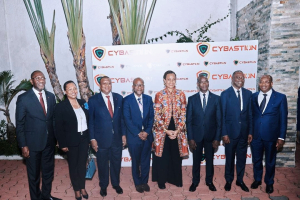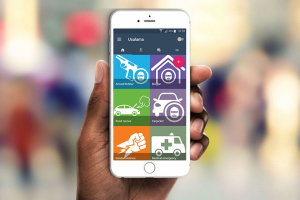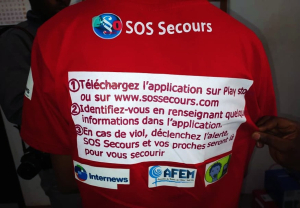Benin Signs Three Deals to Boost Digital Transformation
Benin is ramping up its digital transformation through strategic partnerships to strengthen cybersecurity, drive innovation, and train future talent.
On the sidelines of the fifth Cyber Africa Forum (CAF) in Cotonou last week, the Agency for Information Systems and Digital (ASIN) — the government’s operational arm in the digital sector — signed three key agreements.
“CAF 2025 was the perfect setting to sign these three partnerships,” said Marc-André Loko, Director General of ASIN. “Benin, like other African countries, is truly engaging in a dynamic to become a producer of technology. We no longer want to be mere consumers of technology.”
ASIN signed the first two agreements with Senegal’s Orbus Digital Services (ODS) and Benin’s Quality Corporate. These deals aim to build digital trust by strengthening cybersecurity, improving data governance, and ensuring regulatory compliance. This effort is crucial as West Africa faces a surge in cyberattacks targeting governments, companies, and citizens.
ASIN signed the third agreement with the Institute for Inclusive Digital Africa (IIDiA), backed by the Bill & Melinda Gates Foundation. This partnership will set up a digital innovation lab to spur innovation, train local talent, and modernize public services. The goal is to advance digital inclusion and develop new skills.
These agreements support Benin’s digital strategy, which aims to make technology a driver of inclusive growth. According to GSMA, digitalizing Benin’s economy could add up to CFA1,200 billion (around $2.2 billion) to the GDP by 2028, create over 300,000 jobs, and boost tax revenues.
With these new partnerships, Benin is laying the foundation for a stronger, more innovative, and more inclusive digital ecosystem. The deals reinforce Benin’s ambition to lead in technological innovation in West Africa, focusing on digital trust, inclusion, and local talent to build lasting digital sovereignty.
This article was initially published in French by Samira Njoya
Edited in English by Ange Jason Quenum
Ivory Coast: Ministry of Digital Economy Inks Partnership Agreements with Cybastion, a US Cybersecurity Firm
The digital economy should represent 8.5% of Africa's GDP–or $712 billion–by 2050. This is a promising sector and that is why many African countries have been launching digital transformation projects in recent years.
The Ivorian government allied with US cybersecurity firm Cybastion last Tuesday, July 18. Under the partnership, Cybastion will help reinforce Côte d’Ivoire’s IT facilities and anticipate cyber threats. The company will also help boost locals’ IT skills and train highly qualified professionals who will contribute to the African nation’s digitization in the long term.
The partnership agreements were inked by the ministers of ICT, Transport, and Trade of Côte d’Ivoire, and Cybastion.
Besides these agreements, the minister of ICT, Amadou Coulibaly, also signed with his counterpart from Public Service, Anne Désirée Ouloto, a partnership agreement on the same day with the National Company for the Publication of Administrative Documents and Identification (SNEDAI) and SAH Analytics International group. This agreement is aimed at digitizing and modernizing administrative procedures, especially by setting up a biometric identification system that will cover the country's public administrations.
According to Anne Désirée Ouloto, this partnership will reduce the absenteeism of state workers, and monitor attendance at work. And this should, according to her, bolster transparency and equity in the public sector.
The various partnerships are part of Côte d’Ivoire’s 2021-2025 National Strategy for the Development of the Digital Sector. This is a strategy that features several digitization projects, which align with President Ouattara’s vision to modernize and reinforce Ivorian public services.
Samira Njoya
South Africa: Department of Justice Fined $268,000 for Non-Compliance with Digital Security Rules
As Africa experiences a rapid digital transformation, countries on the continent grapple with digital security issues, and governments double down on efforts to protect various platforms that may be subject to cybercriminal attacks.
South Africa's Department of Justice and Constitutional Development (DOJCD) has been fined 5 million rands ($268,000) by the Information Regulator (IR), according to the South African government's official press agency.
The fine was levied following the DOJCD's non-compliance with the Personal Information Protection Act (POPIA) and a previous antivirus software license renewal order issued by the regulator.
"The enforcement notice required [the department] to provide proof within 31 days of receipt of the notice that the Trend antivirus license, the SIEM [Security Information and Event Management] license, and the intrusion detection system license had been renewed," said the regulatory body.
The notice sent to the department specified that if it failed to comply with this requirement by June 9, 2023, it could face a fine of up to 10 million rand.
As the Department of Justice failed to comply, "[...] the regulatory body concluded that it did not comply with the enforcement notice served on it under POPIA. As a result, the regulatory authority fined the department an administrative penalty of 5 million rand for non-compliance with the enforcement notice," added the regulator.
In September 2021, the ministry suffered a major ransomware attack. Documents containing personal information were compromised and many files were lost. This attack disrupted courts’ operations and all electronic services provided by the ministry for several months.
Since then, the country's authorities have undertaken to secure the ministry's digital infrastructure.
Samira Njoya
South Africa and France Strengthen Cyber Forensic Capabilities
Africa's digital revolution allures investors and cybercriminals alike, presenting both prospects and risks. In response, numerous countries are ramping up security measures to bolster trust in their information and communication systems.
South Africa and France have signed a cooperation protocol agreement to combat cybercrime and enhance anti-corruption efforts. The agreement, signed by South African Justice Minister Ronald Lamola and French Minister for Europe and foreign affairs Catherine Colonna on Monday, June 19, aims to bolster South Africa's Special Investigating Unit (SIU) by establishing an anti-corruption academy in Tshwane. This academy will benefit the SIU, as well as other law enforcement and anti-corruption agencies within the Southern African Development Community (SADC) and beyond.
The collaboration focuses on enhancing the SIU's cyber-forensic investigations, financial crime expertise, and analytical skills. Ronald Lamola highlighted that this training initiative will bring the country's forensic cyber capabilities up to global standards, essential for addressing transnational cyber threats effectively. "This kind of cooperation will be of great value and help to enhance our skills to deal with cybercrime in the country," said Lamola.
Lamola also emphasized the vital role of this collaboration in fortifying South Africa's cybercrime-fighting prowess and revitalizing investor confidence. With cybercrime incidents on the rise, it is crucial to ensure a secure digital environment. During a hybrid information session hosted by the Council for Scientific and Industrial Research (CSIR) on April 4, 2023, Billy Petzer, research group leader, highlighted that cybercrime causes a significant loss of R2.2 billion to the South African economy annually, emphasizing its substantial impact.
Catherine Colonna, the French Minister, also expressed optimism about the partnership's benefits for South African citizens and the broader SADC region. The SIU has already gained expertise through exchanges with French professionals, with 22 trainers now capable of instructing other investigators.
She also stressed the importance of further collaboration and knowledge sharing in the field of cyber investigations. The agreement represents a significant stride in strengthening cyber forensic capabilities and anti-corruption measures, to protect citizens and foster a secure digital environment in South Africa and the SADC region.
“Since the very early stages of our cooperation, members of the SIU have been to France and have had opportunities…to see and experience the French expertise in the field of mostly cyber investigations. I call for those exchanges to grow,” she said.
Hikmatu Bilali
Egypt: Kaspersky thwarted nearly 13 million cyberattacks in Q1 2023
About 13 million cyber attacks targeting bank accounts and customer data in the Egyptian banking sector were thwarted by Kaspersky in the first quarter of 2023, according to Amin Hasbiny, the head of the global research and analysis team for the Middle East, Turkey, and Africa at Kaspersky.
Speaking on the sidelines of Kaspersky's eighth annual cybersecurity forum in Almaty, Kazakhstan, Amin Hasbiny noted that the attacks were 186% up from the figures recorded in the same quarter last year.
With Usalama, Kenyans can swiftly call for help when needed
The solution is the result of one of its founder’s experience. The latter was assaulted when he was a student. After his painful experience, he decided to give others the means to quickly inform relevant authorities when they encounter such situations.
Usalama is a digital solution developed by a Kenyan startup. It allows users to alert relevant authorities when they are threatened, assaulted or burgled. The idea for the solution started from an unfortunate experience one of the founders had while still a student.
“One evening while going home I was suddenly surrounded by four men at gunpoint. I sadly realized that there was no way I could call for help. One of them punched me in the gut and as I was writhing in pain they ransacked me. The ordeal lasted for five minutes but afterwards I saw a problem,” explains Edwin Inganji, one of the founders of Usalama.
The solution has an Android app, through which users can register and select people to be contacted in case of emergency. The app uses GPS to pinpoint users’ exact location, which is transmitted to relevant people along with the time of danger facing the user. Four danger scenarios are predefined on the app and the user, in case of danger, can select one of them.
“Our focus as of now is on four types of emergencies: medical emergencies, security emergencies, roadside rescue and gender-based violence. In each of these areas we seek emergency service providers that offer services in the respective sector and sign them up for our platform,” Edwin indicates.
Usalama sends a message with the location of the victim, the location of the rescuers, the three police stations closest to the victim, and the respective paths to the victim. When the contacts to be reached also have the application on their smartphone, they receive distress calls or notification prompting them to open the app and check the emergency.
The app has already been downloaded more than 5,000 times. Its founders plan to launch it in other countries as more countries are faced with insecurity on the continent.
In 2017, Usalama was a winner of the Innovating Justice BoostCamp of The Hague Institute for Innovation in Law (HiiL). It was awarded €20,000 in funding. In 2019, it was also selected for the Westerwelle Young Founders¸ program, which offers access to six months of mentoring and access to the program’s network.
Adoni Conrad Quenum
South Africa: Namola ensures users’ security
In Africa, several cities are faced with rising and persistent insecurity. In South Africa, where the problem is ever-present, a startup has decided to leverage digital tools to address it.
Namola is a digital solution developed by a South African start-up. It allows users to protect themselves and their families. When a Namola user requests assistance for self or a relative, the startup calls “immediately [...] to confirm details and then dispatch help from Namola Communities, Emergency Services or Private Response.”
Its mobile app -available for Android, iOS, and Huawei devices- has a “panic button” that can be pressed to request assistance. The app also sends notifications to members when their relatives safely leave or arrive whenever they are traveling.
The startup uses GPS technologies to locate users or their relatives when there is an issue. It also uses the technologies for advanced monitoring to ensure safety when there are threats or any other situation that may endanger life. With its national network, it can respond wherever the user or relative needing assistance is.
Since its launch, the Android version of the application has been downloaded more than 100,000 times, according to Play Store. Apart from its free plan, it has a paying offer (Namola Plus that cost ZAR59 or US$3.47 monthly) that entitles to the free services and a range of private services for fast responses.
Adoni Conrad Quenum
Ghana: FLUID helps microfinance institutions get secure data
Data security has become a concern in almost every industry with the development of digital tools. In Ghana, a startup has partially tackled the issue with a solution that allows microfinance institutions to build digital trust by letting their customers “know that their money and data are safe.”
Fluid is a digital solution developed by Ghanaian startup Fluid Finance Technologies. It allows microfinance institutions’ field agents to collect data faster and more efficiently.
“With Fluid’s software, Field Agents work faster and create trust with customers. Payment collections and account creation are now fully digital and video-traceable. This allows microfinance customers to know that their money and data are safe with you,” the startup indicates on its website.
Microfinance agents are thus equipped with the software to better perform their fieldwork. To convince potential customers to subscribe to the services offered, the fintech has created educational videos and various educational content to “upskill” both customers and microfinances’ field agents. Also, the solution is designed to be used completely offline to allow field agents to reach remote communities and provide financial services.
In October 2022, Fluid was selected, along with five other Ghanaian startups, to participate in the first cohort of the MEST Express accelerator focused on sustainability.
Adoni Conrad Quenum
South Africa’s Nithen Naidoo protects firms against cyber threats
Through Snode Technologies, the experienced cybersecurity consultant has developed several cybersecurity tools, receiving international honors and awards.
Nithen Naidoo (photo) is a South African computer scientist who graduated from the University of Pretoria in 2002. He is the founder and CEO of computer security and networking company Snode Technologies, based in Johannesburg, South Africa.
Snode Technologies -founded in 2016- is a cloud-based cybersecurity platform. Its algorithms process dynamic data -audio, video, and text- in real-time to help analysts identify behavioral trends, anomalies, and patterns that were previously impossible to identify with the naked eye.
“Snode was created to gain insight into prevailing patterns, not visible to the human eye, allowing our users to identify attacks before they happen,” Nithen Naidoo said in 2021.
The said startup has more than 80 points of presence worldwide. It offers three services, namely Snode Guard, Snode Guardian, and Snode Panthera.
Snode Guard provides automatic protection against threats such as malware, ransomware, phishing, and disinformation. Snode Guardian provides valuable information about cybersecurity risks or threats that may be prevalent in a said environment to prevent cyberattacks. Meanwhile, Snode Panthera disables attacks and defends vulnerable systems with its real-time automated response system.
Its founder is the winner of the 2019 MEST Africa Challenge. He is also the winner of the SA Innovation Summit 2020, the national finalist of the 2020 Entrepreneurship World Cup, and a finalist of the 2020 Pitch Live competition organized by Disrupt Africa and Africa Tech Summit. In 2021, he received the AfricArena Emerging Entrepreneur Award. His cybersecurity firm was selected among Slingshot 2020’s top 100 global deep tech startups. It was also a finalist for the AppsAfrica 2020 Innovation Award.
The honors and awards crown a professional career that started in 2003 when he joined Orange Cyberdefense as a penetration tester. From 2005 to 2007, he was a senior security consultant for Deloitte. In 2007, he joined the financial services firm Investec as a senior security analyst. Then, in 2009, Absa Group hired him as a senior security architect.
Melchior Koba
DRC: SOS Secours helps send geolocalized alerts when under threat
The solution aims to help law enforcement agencies help as many people as possible in some of DRC’s regions where residents are faced with numerous security challenges.
SOS Secours is a digital solution developed by Congolese start-up Yangu. It helps users notify the startup and get help when their lives are endangered. It has an Android app that can send alerts or even report incidents.
With the app, users can send geolocalized alerts by just shaking their phones. They can also “use the call and messaging options to notify the relatives they selected when activating the app,” Yangu explains.
When it receives an alert, Yangu -thanks to a team of experts- analyzes the threat and sends support or emergency help as needed. The startup also analyses the various threats to pinpoint the locations where users can face such threats at a given period.
Adoni Conrad Quenum











